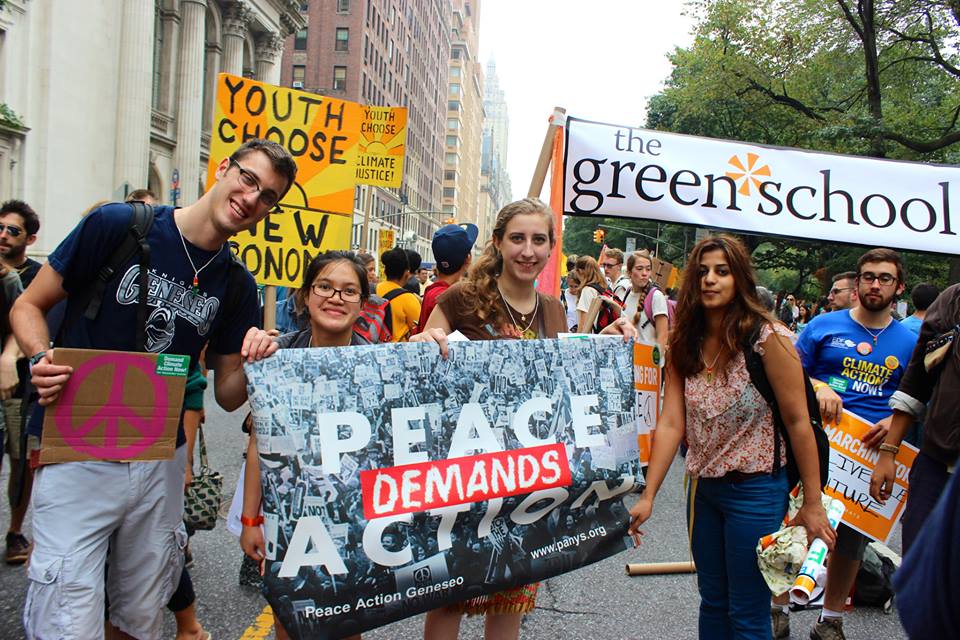Thoughts on the way forward for the Iran nuclear deal
-Kevin Martin, Executive Director
Starting with a great statement by journalist Robert Parry:
“The April 2 framework agreement with Iran represents more than just a diplomatic deal to prevent nuclear proliferation in the Middle East. It marks a crossroad that offers a possible path for the American Republic to regain its footing and turn away from endless war.”
Now some musings about our message focus and framing moving forward:
1. While we need to continue arguing the merits of a nuclear deal with Iran from various angles, I think it’s time to be a bit assumptive, play some offense, and help create an air of inevitability, which can help us dig in more on the politics, which are clearly going to be more important than the policy. The argument goes something like this:
“Like it or not, a nuclear deal with Iran is extremely likely to happen. Iran, the Obama Administration, P5+1 and international community has invested too much for it to fall apart at this point. Just about the only way a deal could get scuttled is by the U.S. Congress. How could that happen? Who would benefit, or perhaps better asked as in whose interests would killing the deal be?
Most Republicans want to kill anything that has Obama’s name on it out of blind partisan loathing. No news flash there. But we shouldn’t let them off the hook. When push comes to shove, to they really want to undermine the President of the United States for their partisan gain, or for their perceived notion of the interests of Israel or Saudi Arabia? I don’t see the harm in raising those questions, not likely to move them, but to help isolate them if they don’t budge.
The key to supporting or upholding a deal (in case there is the need for the President to veto any deal-killing legislation passed by Congress) will be Democrats, even more likely liberal/progressive Dems, some who have been either silent, insufficiently supportive of the Administration’s diplomacy, or outright opponents of a deal. Some are frankly disingenuous, saying they want peace and support diplomacy while advocating completely unrealistic conditions for a deal (Alan Grayson stands out right now). Some are, acknowledged or not, “pro-Israel hawks” or at least highly susceptible to AIPAC et al pressure. They’ll have to be smoked out – do they support the president of their party, and what their base wants, what the world wants, or what AIPAC wants? If the latter, they are helping make a war more likely.
Here is a pretty good analysis going more deeply into some of the political questions, both domestic and international:
2. Back to the policy, which reinforces our message on the politics (I think)
We might want to consider broadening our messaging to address re-balancing regional concerns and U.S. policy so it’s not all about Saudi Arabia and Israel, and the possibility of a new, transformed, positive relationship between the American and Iranian peoples (perhaps phrased like that, rather than between governments).
The latter is fairly self-evident I think, emphasizing that a deal on the nuclear issue could open up all kinds of economic and social benefits to the peoples of the two countries. It’s positive, peaceful, visionary. We should also emphasize the sanctions mostly hurt ordinary Iranians, not the mullahs or oligarchs. I don’t think we’ve gone far enough in “humanizing” the Iranian people, which I know seems simplistic but the level of demonization of an entire country for decades is tough to overcome.
The former is harder, maybe out of our reach. Certainly many elites and Members of Congress advocate Iran remaining in the penalty box forever, regardless of what happens with the nuclear program, and want U.S. policy to continue to privilege Saudi/Gulf states and Israeli interests indefinitely. I doubt they’d see it this way, but Obama, Kerry and co. have actually gone pretty far in bucking that elite consensus with the Iran negotiations.
Perhaps the way to frame this is to get the U.S. on the right side of inevitability. Iran is going to get out of the penalty box, we may become isolated from our allies if we hew to a hard line. Iran is going to play a key role in the region, there are already common interests between the U.S. and Iran, Saudi Arabia and Israel are not going to dominate considerations of US policy in the region forever. There may well be a democratic revolution in Iran in the next decade so let’s be on good terms with the Iranian people, and a deal on nukes is the first step in all of this.
As the sign above says, Peace Demands Action, so we need to stay very engaged as the Congressional deliberations and international negotiations proceed.
I’d love to hear others’ thoughts, criticisms, alternative suggestions.



